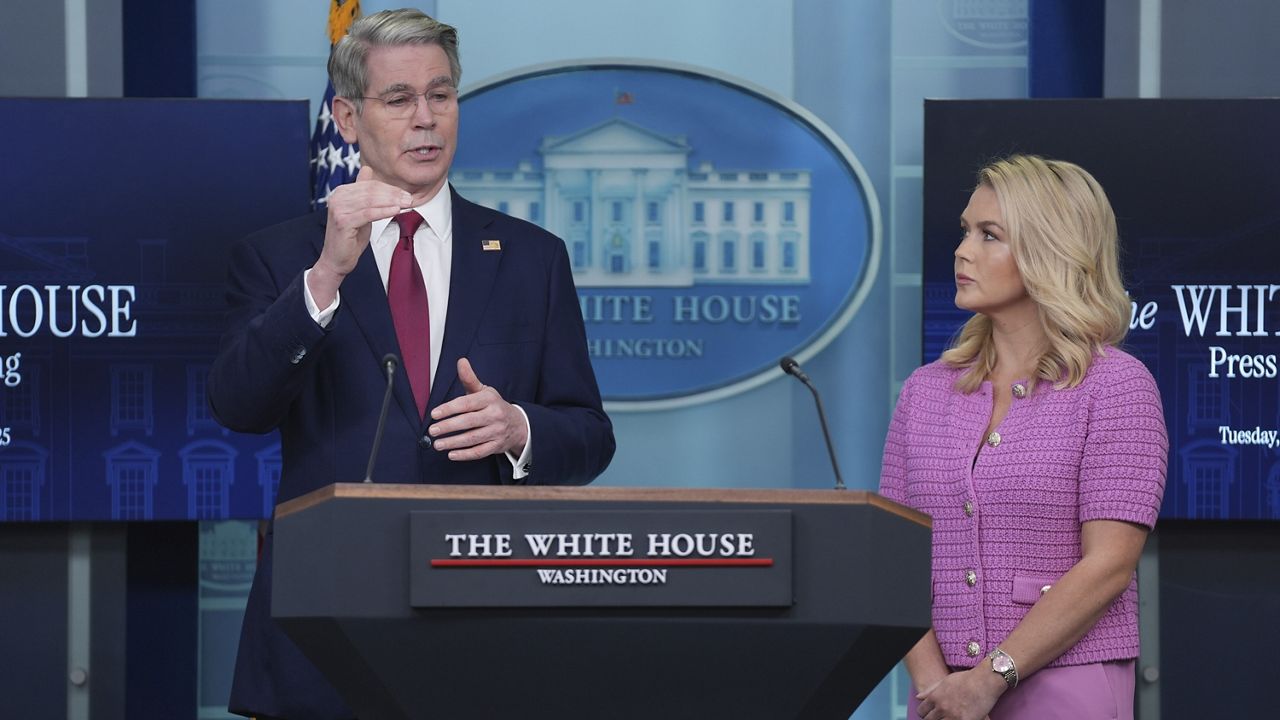A bipartisan group of senators, including two Democrats on the Senate Foreign Relations Committee, sent a letter to President Joe Biden questioning his legal authority to continue to authorize U.S. strikes on Iranian-backed Houthi rebels in Yemen without Congressional approval.
The letter, signed by Sens. Tim Kaine, D-Va., Chris Murphy, D-Conn., Todd Young, R-Ind., and Mike Lee, R-Utah, notes that while the constitution grants the commander in chief the “power and responsibility” to defend the U.S. as well as its personnel and military assets from attacks, most of the ships traveling the Red Sea – the area in which the Houthis are targeting -- are not American vessels, "which raises questions about the extent to which these authorities can be exercised."
"We support smart steps to defend U.S. personnel and assets, hold the Houthis accountable for their actions, and deter additional attacks," the letter reads. "We further believe Congress must carefully deliberate before authorizing offensive military action.”
On Monday, the U.S. and the United Kingdom carried out its latest round of strikes on Houthi targets in response to their escalating attacks on shipping in the Red Sea. The Houthis say they are retaliating against Israel amid its war in Gaza against Hamas. On Wednesday, two U.S.-flagged ships carrying cargo for the Pentagon and U.S. State Department came under fire off Yemen, officials said. The U.S. blamed the Houthis for the attack.
The attacks in the critical global trade route have meant major shipping companies have had to reroute their vessels to avoid the area, causing concerns about delays and rising prices.
“On January 22, 2024, at my direction, United States forces as part of a multinational operation alongside the United Kingdom, with support from Australia, Bahrain, Canada, and the Netherlands, conducted discrete strikes against Houthi underground storage sites and locations associated with the Houthis' missile and air surveillance capabilities in Yemen that support and facilitate Houthi militants' attacks in the Red Sea region,” Biden said in a letter informing Congress of the strikes on Wednesday.
“I directed the strikes in order to protect and defend our personnel and assets, to degrade and disrupt the ability of the Houthi militants to carry out future attacks against the United States and against vessels operating in the Red Sea region, and to prevent the Houthi militants from conducting or supporting further attacks that could further destabilize the region and threaten United States strategic interests,” Biden continued.
Biden said his letter to Congress about the latest strikes, dated two days after the U.S. carried them out, is a part of his effort to “keep the Congress fully informed.” However, consideration from Congress was not sought, according to the senators.
In their letter to the president, the group of senators goes on to ask the Biden administration to answer four specific questions related to his authority, including whether a U.S. president can unilaterally order military action to “defend ships of foreign nations.”
“While the Houthis and their backers, namely Iran, bear the responsibility for escalation, unless there is a need to repel a sudden attack the Constitution requires that the United States not engage in military action absent a favorable vote of Congress,” the Senators wrote. “We have long advocated for deliberate congressional processes in and authorizations for decisions that put servicemembers into harm’s way overseas.”
The U.S. and U.K. first bombed Houthi targets amid the group’s attacks on the Red Sea on Jan. 11. Following that set of strikes, several members of Congress on different ends of the political spectrum similarly questioned Biden’s authority to bypass congressional approval and authorize the strikes himself.
“The President needs to come to Congress before launching a strike against the Houthis in Yemen and involving us in another middle east conflict,” Rep. Ro Khanna, D-Calif., wrote in a post on X, the platform formerly known as Twitter. “That is Article I of the Constitution. I will stand up for that regardless of whether a Democrat or Republican is in the White House.”
"They’re wrong,” Biden declared when asked about the criticism at the time.
Last week, during an exchange with reporters, Biden acknowledged that the U.S. attacks on Houthi targets were not stopping the Iranian-backed group’s attacks on shipping.
“When you say working, are they stopping the Houthis? No,” Biden said. “Are they going to continue? Yes.”







_crop)
